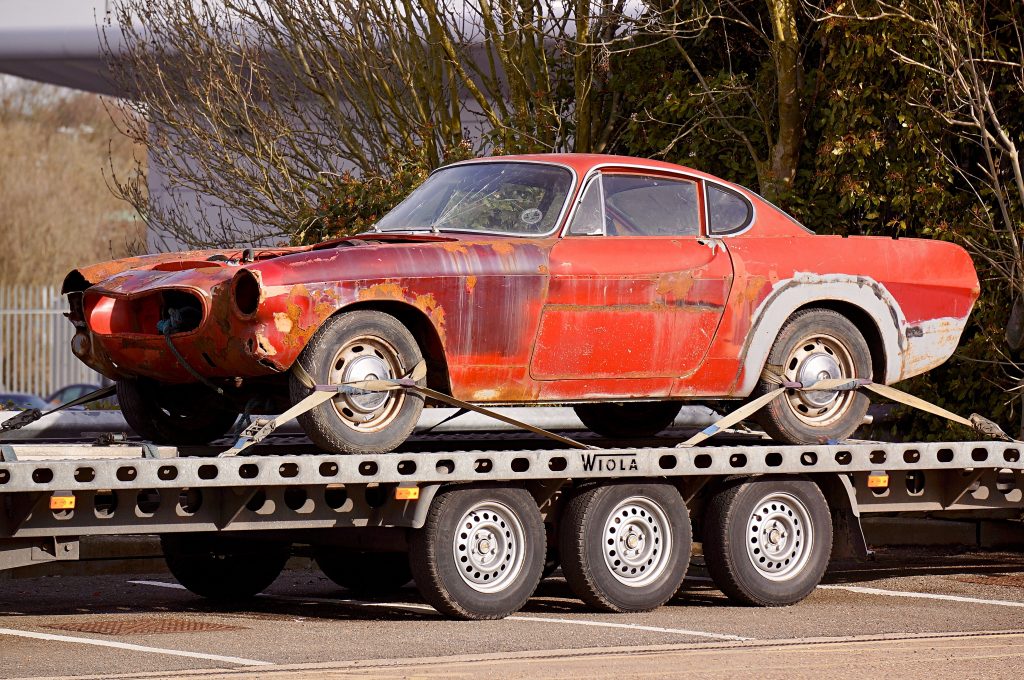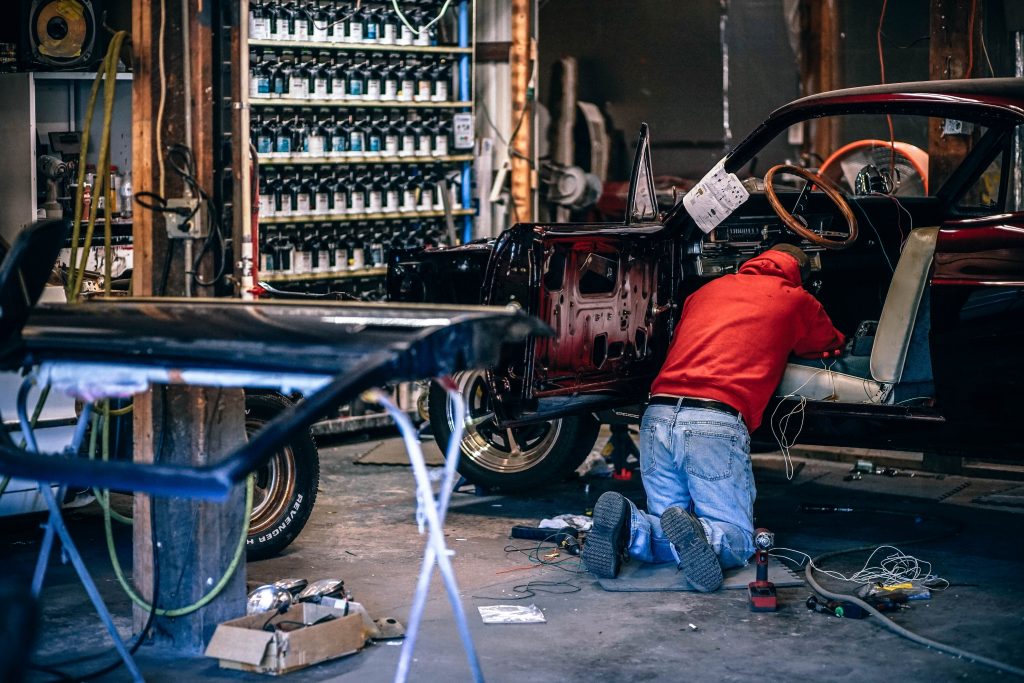Is a Free Car Worth the Cost of Fixing?

Pretty much everyone knows that purchasing a car is a major investment that requires a lot of saving and consideration. Which model do you get? How much will your repayments be? Do I really need this car and should I just blow all my savings on a trip to Mexico? These are all valid questions when thinking about buying a vehicle, but what about those rare instances when a car is offered to you completely for free?
This is an attractive offer, however, as the old saying goes “there’s no such thing as a free lunch”, and this definitely applies to any vehicle being given away without cost. Most likely there is a reason for the “generous” offer and taking on the gifted vehicle can become a lot more expensive than initially thought. Let’s have a look into all the factors you should take into consideration when deciding whether a free car is worth the associated costs with getting it back on the road.
Look at the History
The absolute first thing you need to do when being offered a free car by anyone is ask them what the reason is that they are giving it away. If this is someone you trust, you can likely accept their answers as being somewhat truthful. However, if this is someone online who you do not know, it would definitely be wise to request a Vehicle Identification Number (VIN) check or order one yourself. These can be ordered online and typically run about $30, and they will include a complete history of any major events in the car’s life. You can expect to see things like change of ownership events and sales, but the two things you need to look out for are any flood damage or totalled events. These two dreaded scenarios will render the vehicle completely uninsurable for life, meaning that even if you spent the money required to fix it up, you would not be allowed to drive it on any road anyway. If you see either of these two events, you should pass on the opportunity. If the VIN check returns a relatively clean record, however, it may be worth it to continue to crunch your numbers.
Cost of Transporting
Once you have determined that the free vehicle has no major uninsurable events in its past, it’s time to look at how much it will cost to move the vehicle from the “seller’s” location to your repair shop of choice. If the car is still insured, registered, and roadworthy, then you can just drive it to where it needs to go easily. However, the much more likely scenario is that the vehicle is no longer road worthy and has to be towed. Average towing costs vary, but you’re probably looking at anywhere between $100 to $300 in towing costs, depending on the state of the vehicle and distance it needs to travel. In the grand scheme of things this isn’t a huge outgoing expense, but it is still something to keep in mind.
If the free car is still technically able to be driven but is not insured or registered, it is a supremely risky move to try to drive it to the repair shop illegally. If you are caught, fines start at $5,000 and could go as high as $25,000, which is a lot of money to pay for a “free” car. Even if a car is theoretically road worthy, it is an infinitely cheaper option to just have it towed professionally than risk a hefty fine.

Major Repairs
The largest cost of fixing up a free car will obviously be the major repairs required to get it back on the road. If a car is free, it is likely suffering from some fairly extensive problems that will require expensive fixes. Some examples of major repairs that might be needed are:
Motor Replacement
The heart of the car, a complete motor replacement is probably the most expensive and essential repair any vehicle could have. A brand new motor can run you anywhere from $1,300 to $5,200 depending on the size and complexity of the engine. Even if the car’s motor doesn’t need to be completely replaced, you could probably expect to pay at least $1,000 for repairs to get it back on the road.
Transmission Replacement
Transmission issues are fairly common and 9 out of 10 times they are due to poor transmission fluid maintenance. In manual cars, “riding the clutch” can cause the transmission to wear and eventually give out, resulting in some majorly expensive repairs. A new transmission will likely set you back $2,300 to $4,500 depending on the car, and even just repairing it can go for $1,300 to $2,600.
Head Gasket Repair
The head gasket is an essential part of a properly functioning engine. It seals the motor’s cylinders and allows for internal combustion to occur, which is the driving force behind any traditional car. A broken head gasket will lead to a myriad of issues, from leaking coolant and white smoke, to overheating engines and ruined oil. The actual gasket seal itself is relatively cheap to replace, however, the labour costs involved with reinstalling it are significant and can push the repair into the $2,000 range.

The 50% Rule
There is a general rule of thumb followed by many when it comes to the decision between repairing or replacing any machine – The 50% Rule. This rule states that if the cost of the repair is less than 50% of the value of the vehicle after the repair is completed, then it is worthwhile. For example, if a car required an engine replacement that would cost approximately $4,000, but after that was done the car would then be worth $12,000, then it would certainly be something to consider. However, if the final value of the car post the repair was only $6,000, then it would likely not be worth the investment compared to purchasing a new vehicle.
Interestingly, this rule seems to only really make sense in the context of someone who has originally paid a sum for the car, as it is all about return on investment or cutting losses. In our case, when looking at a completely free vehicle, the 50% rule becomes essentially moot. If we received a car without paying a penny for it, and it required a $4,000 repair, but then the resulting value of the car was anything higher than $4,000, we would have made a profit. Of course, you will have to take into consideration exactly how much more it would be worth post repair, and whether that extra value is simply attributed to the value of its various parts. In that case, it would simply make more sense to sell the car for parts off the bat than invest the money into it.
Recurring Maintenance Costs
Cars that have been deemed not road worthy for whatever reason and are being given away for free will likely demand a higher level of maintenance than a new car. How much this will cost will depend on the vehicle, but after a given time period (say 3 to 6 months), if you average out the cost of the repairs and maintenance that have been required of it and compare it to the average monthly repayments you would make on a brand new vehicle, you can start to see if it has been worth it. For example, let’s say the monthly repayments on a new $32,000 car on an average 5 year term is around $550. If your monthly maintenance and repair costs on your free car that you fixed up are less than $1500 over a three month period, you are still in the black. However, if that free car is starting to cost you anymore than that, you are looking at some serious problems.
Safety and Emissions Testing
Once your free car has been all fixed up, you’ll need to get it tested for safety and emissions by your local authority. This may or may not be mandatory depending on where you live, and the cost of these services will likely vary. In Ontario, a safety certificate costs between $60 and $90 and an emissions test for a light vehicle under 4,500 kilograms is $30. Again, these are not huge costs especially in light of the major repairs the car likely needed, but just another expense to keep in mind.
Even Trash can be Treasure
In theory, even completely totalled cars hold some value. One reason a car might be given away for free is that it has been completely destroyed and the owner does not want to deal with trying to take it to the junkyard or resell it for parts. This is where a savvy entrepreneur could step in and make a bit of extra money, assuming the numbers added up properly. If you cost out what it would cost to move the wreck from the seller’s location to your junk yard of choice and compare it to the total value of the parts you could salvage from it, anything that comes out as a positive would be a profit. Of course, you would also have to take into account opportunity cost of your time and effort, and whether you are actually in desperate need of a working vehicle for your day to day life.
It Depends on Your Circumstances
Whether a free car is worth the cost of fixing up will come down to what your personal and financial circumstances are, as well as the overall state of the vehicle being offered. If you have a decent lump in your savings account to cover the initial costs of repair and recertification, and the car is not a complete write off, it may be worth your time to fix it up. This might also be your best bet if your credit rating is not in a position to allow you to finance a new car, or you do not believe you will be able to afford the monthly repayments for the life of the contract. However, if your credit rating is good enough and you believe that the monthly repayments won’t put you under too much financial pressure, it might be a good idea to pass on the free car and save you the headaches of repairing it, only to have it breakdown for good in a few years.

